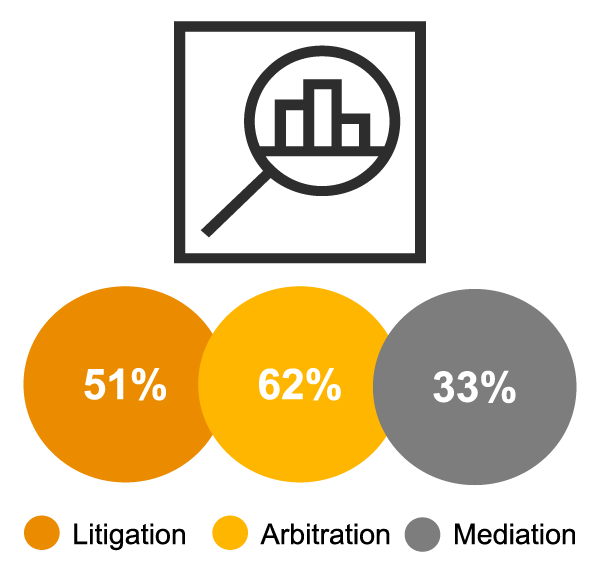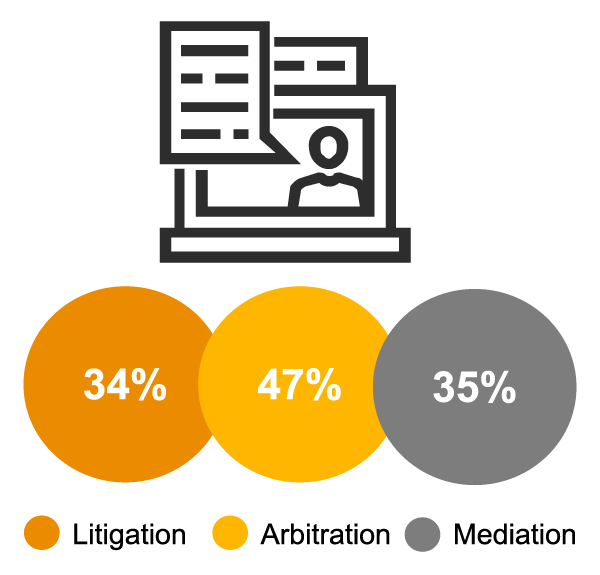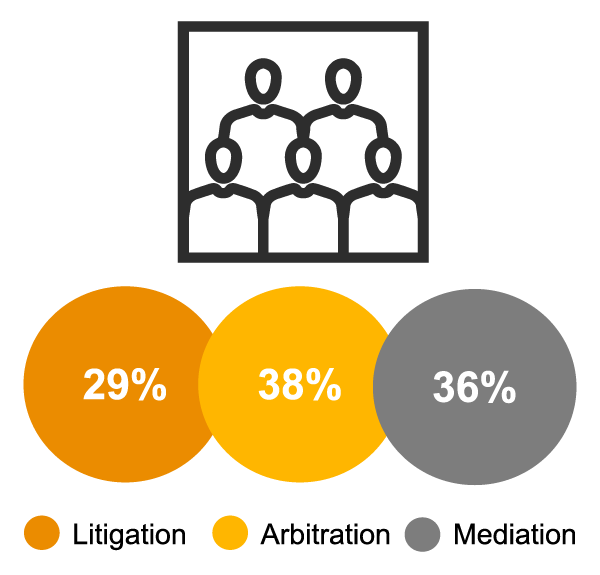In recent years, Legal Technology (LegalTech) has grown in sophistication and brought many benefits to stakeholders in the Dispute Resolution space. Services such as electronic filing systems and case management software have made processes more efficient and less menial.
With measures in place to mitigate the spread of COVID-19 pandemic, it is no surprise that businesses are moving towards digitalisation to cope with changing demands and the new business landscape. Technological advancement in the Dispute Resolution scene then comes under the spotlight to enable Dispute Resolution processes to continue.
With the normalising of virtual hearings during the pandemic, it is likely that virtual hearings will remain an option post-pandemic.
Deeper insights on International Dispute Resolution
We assisted the Singapore International Dispute Resolution Academy (SIDRA) in conducting the International Dispute Resolution Survey 2020 (SIDRA Survey), which was published in July 2020.
Our series explores the currently emerging trends and possible future developments in the Dispute Resolution scene based on insights drawn from the SIDRA Survey, so as to help you make strategic decisions.
Embracing digital transformation in Dispute Resolution
While users have greatly benefited from developments in LegalTech, concerns over security, privacy and data protection should not be downplayed. It is imperative to establish and implement best practices and protocols as the dependence on technology increases.
Overview of key considerations of incorporating technology in Dispute Resolution
Determine your goals/needs
Functionality of tool
Security of platform
The jurisdiction and laws








